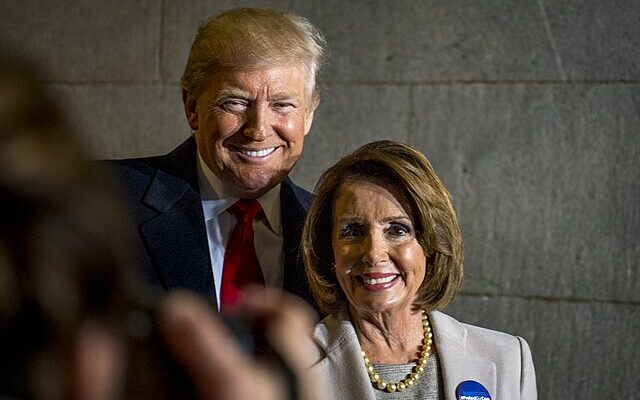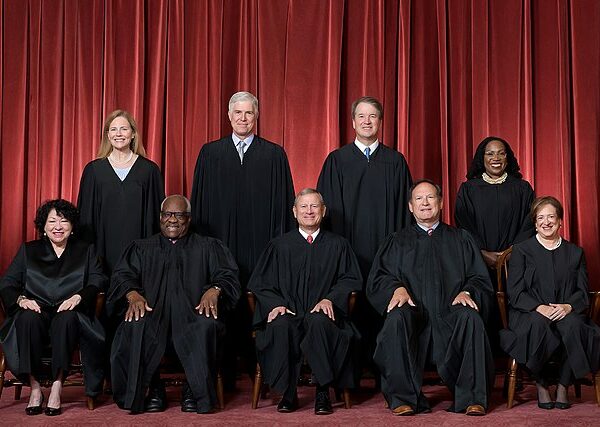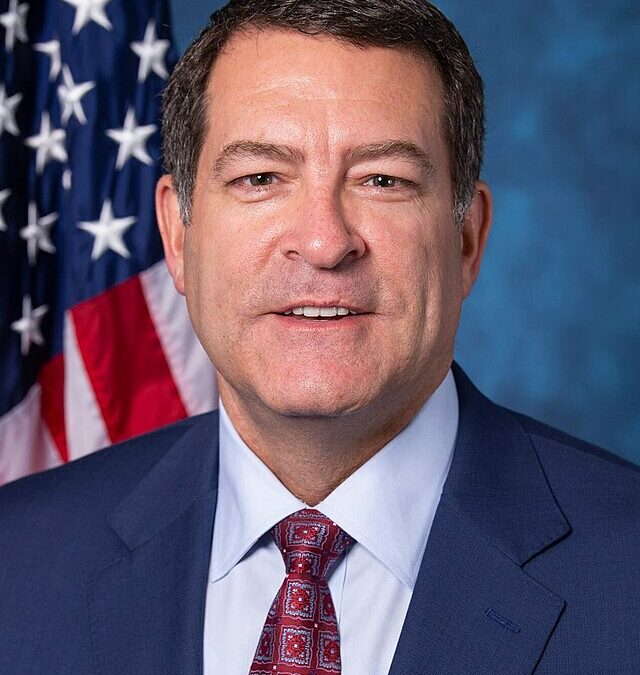
Democrats are beginning to grapple with the fact that Donald Trump may soon be president again by already working the bureaucracy in hopes of undermining him.
Rep. Adam Schiff, the current frontrunner to be the next senator from California, recently said he hopes American intelligence officials will limit the information they share with former President Donald Trump once they start briefing him on national security matters pow. The briefings are standard practice for presidential nominees to allow a stable transition of power after the election.
“I have to hope — and knowing the intelligence community, as I do — that they will dumb down the briefing for Donald Trump. That is, they will give him no more information than absolutely necessary,” said Schiff, a California Democrat who previously served as the Democratic chairman of the House Intelligence Committee before Kevin McCarthy, then the Republican House Speaker, booted him and his fellow Californian Eric Swalwell off the important committee.
BREAKING: Adam Schiff states the U.S. Intelligence Community will withhold intelligence briefings from Donald Trump, conceiling information, sources, and methods if he wins re-election this fall. pic.twitter.com/0CUsqAQqXN
— The General (@GeneralMCNews) March 10, 2024
Politico noted that “the decision to brief Trump would be in keeping with a practice that dates back to 1952, but, as Schiff noted Sunday, it would be the first time an administration has willingly shared classified information with a candidate who is facing criminal charges related to their handling of classified material.”
Schiff’s move to refuse to treat Trump like a legitimate presidential candidate in the name of “defending democracy” is in line with the way most liberals are thinking these days. A recent poll revealed that Democrats want their members of Congress to refuse to certify Trump’s victory if he beats Biden this November.
A stunning 57 percent of likely Democrat voters have told pollster Rasmussen Reports that Congress should refuse to certify the result of the 2024 election in the event of a Donald Trump victory, The National Pulse can exclusively reveal.
The poll, sponsored by The National Pulse, asked a statistically representative 912 U.S. likely voters: “Some Democrats in Congress have said that if Trump wins this year’s election, they will vote against certifying the election results because of Trump’s role in the January 6, 2021, Capitol riots. Do you support or oppose Democrats refusing to certify the election results if Trump wins?”
Almost two-thirds of self-identified “liberals” said they wanted Democrats to refuse certification, despite the left and corporate media meltdown over 2020’s electoral certification objections by Republicans. Black Americans also appear to favor the move, with 59 percent backing the recently mooted idea of blocking a second Trump term via Congress.
Republicans are overwhelmingly opposed to the idea, though 35 percent of all U.S. likely voters appear to support the proposed effort.
Understand what is going on. Thanks to @Rasmussen_Poll for the data. pic.twitter.com/2pLMpW2va4
— Raheem. (@RaheemKassam) March 11, 2024
A few days before the Supreme Court ruled that random state officials cannot simply pronounce that a candidate participated in an “insurrection” to make them ineligible for the presidency, The Atlantic wrote that “a Trump win could lead to a constitutional crisis in Congress. Democrats would have to choose between confirming a winner many of them believe is ineligible and defying the will of voters who elected him. Their choice could be decisive: As their victory in a House special election in New York last week demonstrated, Democrats have a serious chance of winning a majority in Congress in November, even if Trump recaptures the presidency on the same day. If that happens, they could have the votes to prevent him from taking office.
In interviews, senior House Democrats would not commit to certifying a Trump win, saying they would do so only if the Supreme Court affirms his eligibility. But during oral arguments, liberal and conservative justices alike seemed inclined to dodge the question of his eligibility altogether and throw the decision to Congress.
The choice that Democrats would face if Trump won without a definitive ruling on his eligibility was almost too fraught for Representative Jamie Raskin of Maryland to contemplate. He told me he didn’t know how he’d vote in that scenario. As we spoke about what might happen, he recalled the brutality of January 6. “There was blood all over the Capitol in the hypothetical you posit,” Raskin, who served on the January 6 committee with Schiff, told me.
As Republicans are fond of pointing out, Democrats have objected to the certification of each GOP presidential winner since 2000. None of those challenges went anywhere, and they were all premised on disputing the outcome or legitimacy of the election itself. Contesting a presidential election by claiming that the winner is ineligible, however, has no precedent. ‘It’s very murky,’ [Democrat Zoe] Lofgren said. She believes that Trump is ‘clearly ineligible,’ but acknowledged that ‘there’s no procedure, per se, for challenging on this basis.’”
After he won in 2016, Democrats begged the Electoral College to pick someone else as president. Roughly half a dozen Democratic electors “signed onto an attempt to block Donald Trump from winning an Electoral College majority, an effort designed not only to deny Trump the presidency but also to undermine the legitimacy of the institution,” Politico noted at the time.
[Read More: Biden Begs For Forgiveness]











